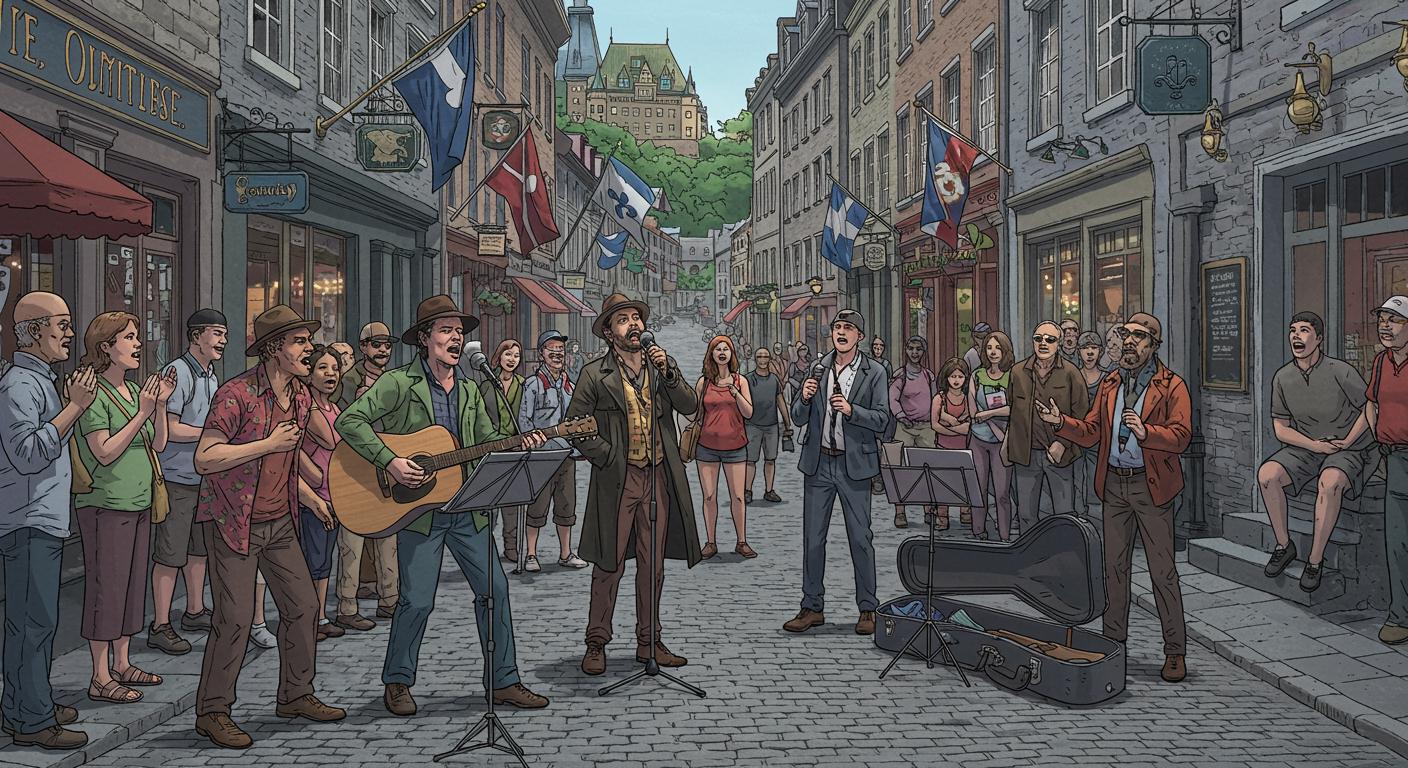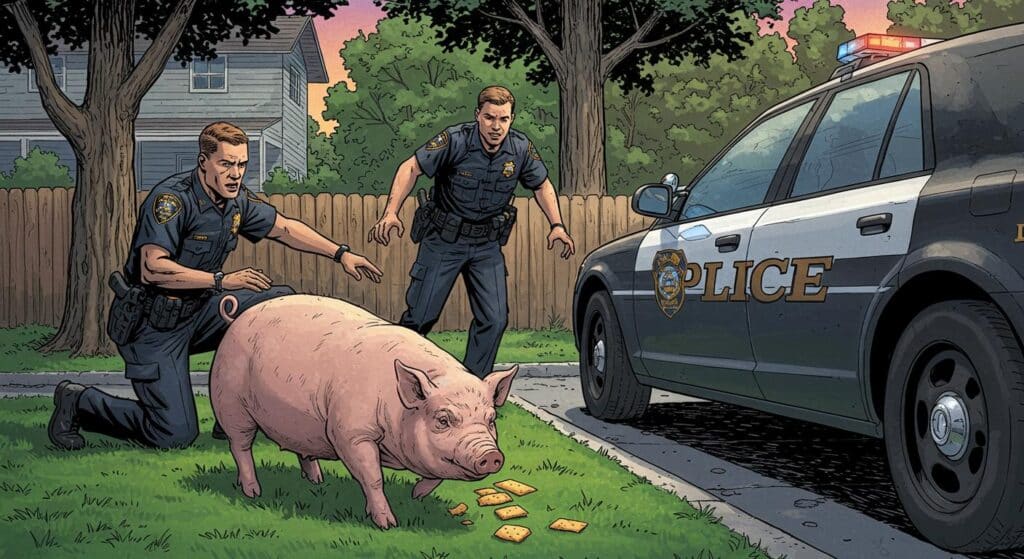Let’s file this under “rules you probably didn’t realize street performers had to follow”—unless, I suppose, you’re a musician settling in for an afternoon’s serenade under the looming stone walls of Old Quebec. As CBC News highlights, Quebec City has taken a rather firm (and uniquely Quebecois) step in its latest effort to preserve local francophone culture among its street artists: as of this season, musicians performing in two of the city’s best-known busking areas are required to sing exclusively in French—or, if that doesn’t strike the right chord, stick to instrumentals.
A Street Stage with New Rules
According to the modified municipal regulations, artists entertaining crowds in the heavily-trafficked Petit Champlain district—famed for cobblestone streets and its appeal to both tourists and locals—must now demonstrate their commitment to the French language right there on the sidewalk. Gone are the days when you could wander those old streets and hear “Hey Jude” sung with a hint of Québécois flair. The city explains that this requirement is a tribute to both the “reality of francophones in Quebec City” and the 40th anniversary of its designation as a World Heritage City. Framed as a pilot project, officials say it will be reassessed, though anyone familiar with the staying power of pilot projects might be forgiven a raised eyebrow.
For many musicians, this development hits a dissonant note. Bosko Baker, a veteran busker originally from the U.S., reflected that the rule “takes away from the cultural mixture that was so beautiful years ago in Quebec,” observing—as detailed in the CBC report—that restrictions have increased over time, shrinking the list of approved venues and limiting not just what can be played, but now also the very language of performance. Baker’s perspective captures a steady narrowing of opportunity and, perhaps, inspiration.
When Guidelines Become Guardrails
Musicians familiar with Quebec’s street scene see these guidelines as more than a gentle nudge. Violinist Birdie Veilleux, for instance, described Quebec’s capital as “the most regulated place in the world to play.” The specifics bear out his point: 53 sites remain on the city’s approved list, but each comes with its own precise restrictions—including limits on performance hours and group size, now joined by this linguistic filter. The city maintains that the number and location of sites haven’t changed since last year, attributing any perceived shift to construction, yet the sense among performers, as CBC details, is that the environment has steadily become less welcoming.
Veilleux pointed out that opportunities for “proper crowds and proper pay”—especially in prime pedestrian spots like those affected by the new rule—have diminished, as artists weren’t consulted and had no warning of the change. It’s the kind of surprise that buskers could probably do without.
A Case Study in Cultural Curatorship
The ironies here are quietly striking. Veilleux, who describes himself as a separatist, nonetheless finds the rule “ridiculous,” conceding that Quebec City’s culture isn’t exclusively French. Indigenous artists wanting to perform in their own languages would find themselves excluded. In an amusing twist noted by the musicians, American pop music continues to blare unabated from restaurant terraces just down the street—apparently, some forms of public English-language performance are more equal than others.
Musicians, as mentioned in the CBC coverage, have previously attempted to voice their concerns, even petitioning city officials, but with little effect. The sense of loss isn’t just theoretical: many career street musicians have gypsied off to friendlier pastures, and Veilleux laments a decline in both quality and vibrancy as regulation crowds out the spontaneity that once defined the busking scene.
Regulation or Requiem?
Quebec’s passion for language politics is storied, but this latest example—requiring street entertainers to demonstrate linguistic purity—reflects a broader Canadian trend toward detailed control over street performance. Other cities, including Calgary and Fredericton, have ramped up their own oversight in recent years, sometimes under the same banner of balancing neighborly peace with creative expression, as CBC’s related reporting outlines.
Yet there’s an open question humming beneath this story: Can vibrant culture really be legislated, or does bureaucratic protectionism simply sap the joy and surprise out of urban life? Seeing a centuries-old city that built its reputation as a crossroads of cultures now fencing off the sidewalk with language rules feels oddly discordant. Perhaps the most unexpected twist is that, even as the red tape thickens, the hope among Quebec’s buskers remains that some unpredictable, magical moment might still slip between the lines—at least until the next regulation takes center stage.







